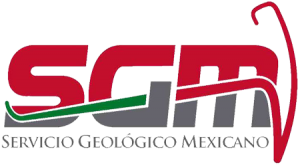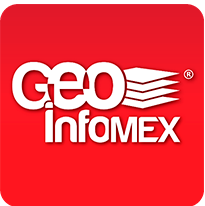New Millennium Iron Corp. (“NML” or the “Corporation”) (TSX:NML) announced today its financial results for the fourth quarter and year ended December 31, 2011.
The following review of the Company’s financial performance is based on the audited Consolidated Financial Statements and Management’s Discussion and Analysis (“MD&A”) for the year ended December 31, 2011, which have been filed on the SEDAR website at www.sedar.com. These are the Company’s first audited Consolidated Financial Statements in accordance with International Financial Reporting Standards (“IFRS”).
Progress continued in the fourth quarter on NML’s three major iron ore project initiatives, two of which are being carried out with strategic partner and shareholder Tata Steel Limited.
The Direct Shipping Ore Project (“DSO Project”) through a 20% ownership interest in Tata Steel Minerals Canada Limited (“TSMC”), operator of the Project: (1) signing by TSMC of an Impact and Benefit Agreement (“IBA”) with the Innu Nation of Labrador; (2) award of a General Construction Contract to Innu Municipal LP of Labrador City; and, subsequent to the quarter, (3) signing by TSMC of the fourth and final IBA concluded with regard to the DSO Project; (4) signing of a life-of-mine Rail Transportation Agreement with the Quebec North Shore & Labrador Railway Company; and (5) procurement of major process equipment and long lead items, as well as inauguration and operation of the construction camp.
On NML’s Taconite Project, feasibility level work under a Binding Heads-of-Agreement with Tata Steel advanced on the large LabMag and KeMag deposits: (1) delivery of a 20 tonne crushed and blended bulk sample from KeMag to Studien Gesellschaft fur Eisenerz Aufbereitung in Germany for pilot scale tests; and (2) engagement of SNC Lavalin as feasibility study manager and specialist firms to progress each component of the study.
On NML’s third project, exploration drilling continued at other Millennium Iron Range taconite properties that are 100 percent owned by NML and which represent potential opportunities for additional strategic partnerships: (1) completion of drilling at the Lac Ritchie property and initial assay results; (2) commencement of drilling at the Howells Lake and Perault Lake properties; and, subsequent to the quarter, (3) further results from Lac Ritchie; (4) initial results from Howells Lake and Perault Lake; and (5) the start of 2012 drilling on these latter two properties.
At the general corporate level, NML: (1) was approved for and listed on the Toronto Stock Exchange; (2) announced certain senior management and board of directors changes, including the appointment of Ms. Cathy Dornan as VP Communications at the newly opened St. John’s NL office, the appointment of General (Ret.) Rick Hillier to the Board, and the appointment of Mr. Sandip Biswas as successor to Mr. N.K. Misra on the Board.
The Company’s net income for the three months ended December 31, 2011, is $28,565,000 ($0.16 per share) compared to a net loss of $1,544,000 ($0.01 per share) for the comparative period in 2010. The most significant item in comparing the 2011 fourth quarter’s net income to the loss in the prior year’s comparative period is the gain on sale of the DSO Properties of $31,162,000 for which there was no corresponding transaction in the prior period. Other items occurring in the quarter were: service fee revenue of $1,709,000 (2010 – Nil), general and administrative expenses of $4,566,000 (2010 – $1,596,000), investment income of $252,000 (2010 – $52,000), and other income of $8,000 (2010 – Nil). The most significant components of the general and administrative expenses were: stock based compensation of $1,683,000 (2010 – $520,000), service fee expenses of $1,101,000 (2010 – Nil), professional fees of $1,034,000 (2010 – $393,000), general and administrative expenses of $476,000 (2010 – $636,000), and market development expenses of $234,000 (2010 – $122,000). During the quarter, NML recorded $480,000 (2010 – Nil) received from Tata Steel Global Minerals Holdings PTE Ltd. (“Tata Steel”) in relation to its option on the LabMag Project and KeMag Project as a reduction of general of administrative expenses on its statement of comprehensive income.
NML’s net income for the year ended December 31, 2011, was $21,136,000 ($0.12 per share) compared to a net loss of $10,006,000 ($0.07 per share) for the 2010 fiscal year. The most significant item in comparing the 2011 fiscal year’s net income to the loss for the prior year is the gain on sale of the DSO Properties of $31,162,000 for which there was no corresponding transaction in the prior period. Other items occurring in the year were: service fee revenue of $1,709,000 (2010 – Nil), general and administrative expenses of $13,188,000 (2010 – $10,248,000), investment income of $845,000 (2010 – $80,000), other income of $608,000 (2010 – Nil), and net increase in fair value of long term investment of Nil (2010 – $162,000). The most significant components of the general and administrative expenses were: stock based compensation of $6,001,000 (2010 – $1,157,000), service fee expenses of $1,101,000 (2010 – Nil), professional fees of $3,578,000 (2010 – $6,956,000), general and administrative expenses of $1,491,000 (2010 – $1,881,000), and market development expenses of $923,000 (2010 – $294,000). During the year, NML recorded $1,492,000 (2010 – Nil) received from Tata Steel in relation to its option on the LabMag Project and KeMag Project as a reduction of general of administrative expenses on its statement of comprehensive income.
As at December 31, 2011, due to the sale of the DSO Properties the Company’s mineral exploration and evaluation assets decreased to $35,918,000 from $52,135,000 as of December 31, 2010, or by $16,217,000. The components of mineral properties at December 31, 2011, were: mineral licences of $2,730,000, drilling of $21,936,000, resource evaluation of $12,776,000, environmental of $8,303,000, and amortization of property and equipment of $45,000, net of tax credits and mining duties of $6,121,000 and the Tata Steel payments of $3,751,000.
About New Millennium
The Corporation controls the emerging Millennium Iron Range, located in the Province of Newfoundland and Labrador and in the Province of Quebec, which holds one of the world’s largest undeveloped magnetic iron ore deposits. In the same area, the Corporation and Tata Steel Limited, one of the largest steel producers in the world, are advancing a DSO Project to near term production. Tata Steel Limited owns approximately 27% of New Millennium and is the Corporation’s largest shareholder and strategic partner.
Tata Steel exercised its exclusive option to participate in the DSO Project and has a commitment to take the resulting production (see news release 10-16 dated September 14, 2010). The DSO Project is owned and operated by TSMC, which in turn is 80% owned by Tata Steel and 20% owned by NML. The DSO project contains 64.1 million tonnes of Proven and Probable Mineral Reserves at an average grade of 58.8% Fe, 8.1 million tonnes of Measured and Indicated Mineral Resources at an average grade of 58.8% Fe, 7.2 million tonnes of Inferred Resources at an average grade of 56.8% Fe and about 40.0 – 45.0 million tonnes of historical resources that are not currently in compliance with NI 43-101 (see news release 09-03 dated February 11, 2009, news release 09-05 dated March 4, 2009, news release 09-16 dated December 9, 2009 and news release 10-12 dated July 8, 2010). A qualified person has not done sufficient work to classify the historical estimate as current mineral resources or mineral reserves, the Corporation is not treating the historical estimate as current mineral resources or mineral reserves and the historical estimate should not be relied upon.
The Millennium Iron Range currently hosts two advanced projects: LabMag contains 3.5 billion tonnes of Proven and Probable reserves at a grade of 29.6% Fe plus 1.0 billion tonnes of Measured and Indicated resources at an average grade of 29.5% Fe and 1.2 billion tonnes of Inferred resources at an average grade of 29.3% Fe (see news release 06-13 dated July 5, 2006 and news release 07-11 dated July 17, 2007); KeMag contains 2.1 billion tonnes of Proven and Probable reserves at an average grade of 31.3% Fe, 0.3 billion tonnes of Measured and Indicated resources at an average grade of 31.3 % Fe and 1.0 billion tonnes of Inferred resources at an average grade of 31.2% Fe (see news release 09-01 dated January 16, 2009).
Tata Steel also exercised its exclusive right to negotiate and settle a proposed transaction in respect of the LabMag Project and the KeMag Project (see news release 11-09 dated March 6, 2011).
The Corporation’s mission is to add shareholder value through the responsible and expeditious development of the Millennium Iron Range and other mineral projects to create a new large source of raw materials for the world’s iron and steel industries.
For further information, please visit www.NMLiron.com, www.tatasteel.com and www.tatasteeleurope.com.
Dean Journeaux, Eng., and Thiagarajan Balakrishnan, P. Geo., are the Qualified Persons as defined in National Instrument 43-101 who have reviewed and verified the scientific and technical mining disclosure contained in this news release.
Forward-Looking Statements
This document may contain “forward-looking statements” within the meaning of Canadian securities legislation and the United States Private Securities Litigation Reform Act of 1995. These forward-looking statements are made as of the date of this document and the Corporation does not intend, and does not assume any obligation, to update these forward-looking statements.
Forward-looking statements relate to future events or future performance and reflect management of the Corporation’s expectations or beliefs regarding future events and include, but are not limited to, statements with respect to the estimation of mineral reserves and resources, the realization of mineral reserve estimates, the timing and amount of estimated future production, costs of production, capital expenditures, success of mining operations, environmental risks, unanticipated reclamation expenses, title disputes or claims and limitations on insurance coverage. In certain cases, forward-looking statements can be identified by the use of words such as “plans”, “expects” or “does not expect”, “is expected”, “budget”, “scheduled”, “estimates”, “forecasts”, “intends”, “anticipates” or “does not anticipate”, or “believes”, or variations of such words and phrases or statements that certain actions, events or results “may”, “could”, “would”, “might” or “will be taken”, “occur” or “be achieved” or the negative of these terms or comparable terminology.
By their very nature forward-looking statements involve known and unknown risks, uncertainties and other factors which may cause the actual results, performance or achievements of the Corporation to be materially different from any future results, performance or achievements expressed or implied by the forward-looking statements. Such factors include, among others, risks related to actual results of current exploration activities; changes in project parameters as plans continue to be refined; future prices of resources; possible variations in ore reserves, grade or recovery rates; accidents, labour disputes and other risks of the mining industry; delays in obtaining governmental approvals or financing or in the completion of development or construction activities; as well as those factors detailed from time to time in the Corporation’s interim and annual financial statements and management’s discussion and analysis of those statements, all of which are filed and available for review on SEDAR at www.sedar.com. Although the Corporation has attempted to identify important factors that could cause actual actions, events or results to differ materially from those described in forward-looking statements, there may be other factors that cause actions, events or results not to be as anticipated, estimated or intended. There can be no assurance that forward-looking statements will prove to be accurate, as actual results and future events could differ materially from those anticipated in such statements. Accordingly, readers should not place undue reliance on forward looking statements.
Contacts:
New Millennium Iron Corp.
Dean Journeaux
President & CEO
(514) 935-3204
Investor Relations
Andreas Curkovic
(416) 577-9927





















